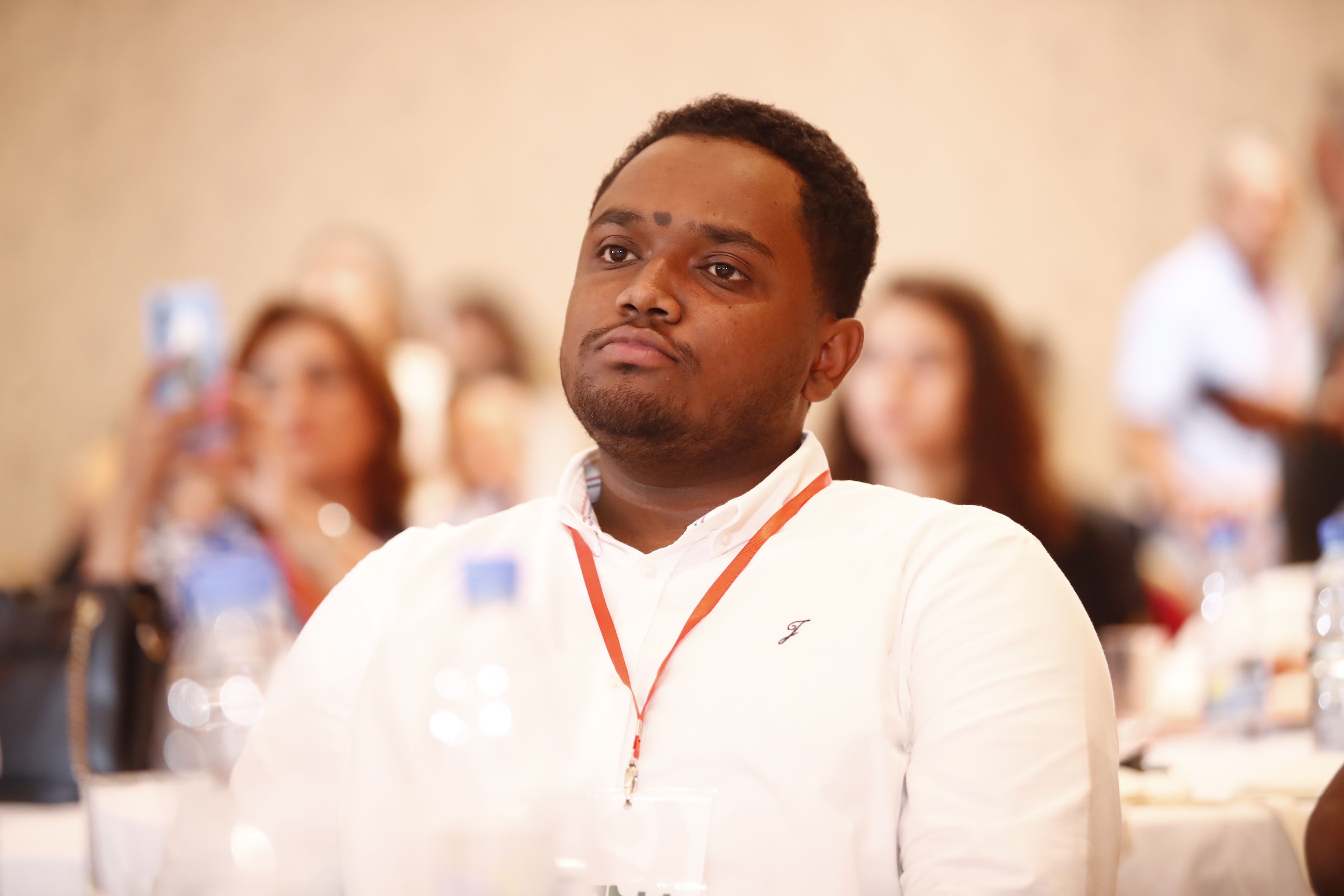Trigger Warning and Disclaimer: the content that you are about to read contains graphic and sensitive experiences. The opinions and opinions expressed in this piece solely reflect the author's views and not Andariya's. Reader discretion is advised. Read our full editorial notice here.
In the early days of the war, under the weight of artillery fire and the sounds of warplanes, it becomes difficult to focus on anything other than trying to survive, stay alive, and keep loved ones safe. During this time, as the world anxiously watched what was happening in Sudan, due to the lack of understanding and a clearer vision of the general situation and the reasons for the war, and while waiting for the intelligentsia to release a statement and take positions, in their attempt to understand the course of the ongoing conflict and provide a clearer analysis of its logical causes, at these critical moments, when everyone was trying to survive, traps were being set and gallows were hung for any future attempt to take anti-war positions.
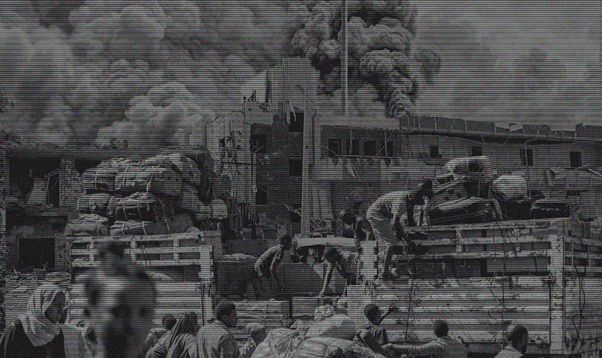
Source: Ahmed Al-Atta
Afterward, the intellectuals woke up to the collapse of neutrality, and the dominance of the war mentality over everyone, and the alignment of individuals behind the warring parties. One side wore the hat of patriotism and made war an inevitable fate, the only alternative, as the last national institution of the state, justifying his stance and continuity in the war as a defender of state sovereignty and the protection of citizens from a semi-foreign enemy.
Meanwhile, the other side justified and sheltered itself in the anti-war position, seeking to align with those advocating for historically marginalized geographic issues, in a failed attempt to create a bloc that would gain public acceptance among civilians, justifying its continuity in the pursuit of democracy. During the April war, targeting intellectuals and stripping them of their voices in expressing their opinions was evident from both sides: the armed forces and the RSF, where all opinions and analyses were pre-prepared, and you were only left with the choice, out of fear of having your national credentials revoked.

Source: Ahmed Al-Atta
What we mean by the term "intellectual" here is the concept translated from the European context of the 19th century, which refers to the specialist who goes beyond their field of expertise to delve into public issues. It is worth noting that this term came into the spotlight through the French writer Émile Zola during the case of a French Jewish officer who was falsely accused during the rise of anti-Semitism in 19th-century Europe. A number of intellectuals, including Zola, signed a political petition in which they criticized anti-Semitism.
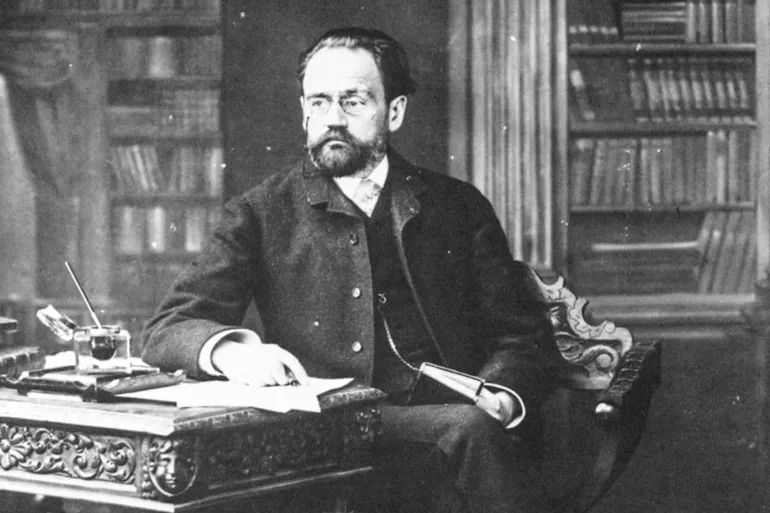
Emile Francois Zola - Source: Al Jazeera.net
Critics have widely used this term to refer to a moral authority that derives its legitimacy not only from social status based on scientific and literary achievements but also from taking a critical stance toward the practices of authorities and prevailing prejudices in the public sphere. It combines rational thinking, deep analysis, and value-based and ethical positions on societal issues.
According to Azmi Bishara, there are two types of intellectuals: the conservative intellectual and the revolutionary intellectual. He believes that the conservative intellectual may evolve into a reformist, and if they fail to achieve their goals, they may become opportunistic or return to being revolutionary. In our current context, we find that the national conservative intellectual is clearly absent. As for the revolutionary intellectual, they have dealt with the war differently, viewing it as a form of voluntary work. They focused on continuing their civil role towards their communities. They provided the essentials of life, helped organize what remained of the war-torn community, set up emergency rooms, and reopened hospitals and health centers in neighborhoods. In contrast, it seems that the conservative intellectual has been led by the masses, which is reflected in the fact that the current war is dominated by populist slogans and driven by the tyranny of the public.
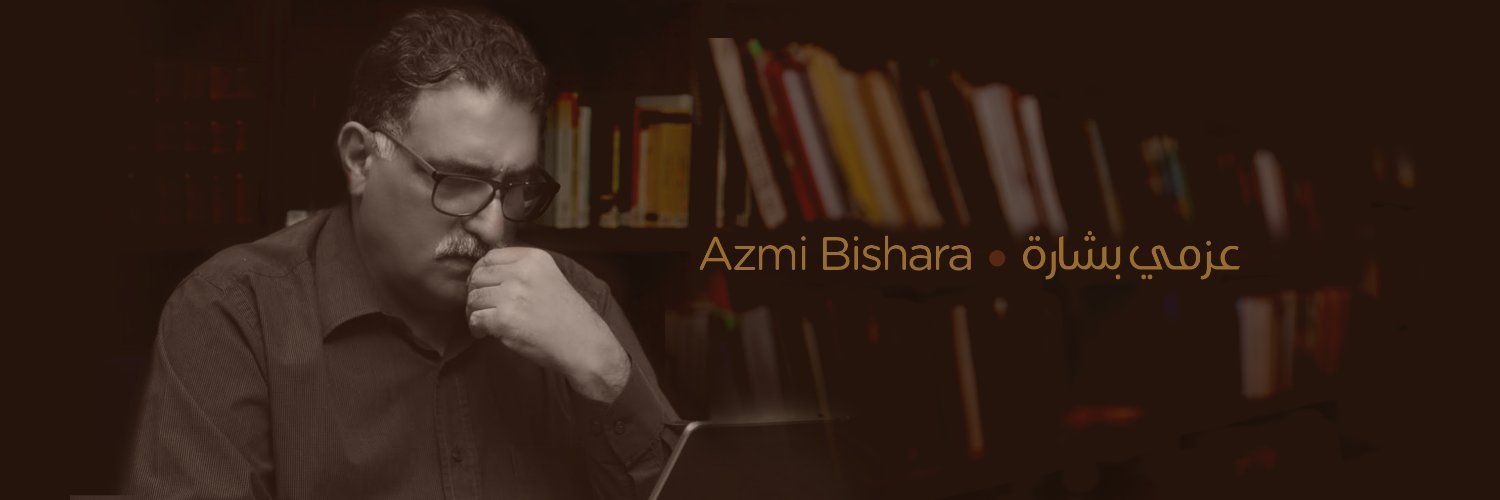
Azmi Bishara - Source: his page on X
All this leads us to and reflects the weakness of the conservative intellectual and his lack of intellectual sobriety, which resulted in him being guided by society instead of leading it, and he was content with trying to prove his existence by flying and jumping over positions. This situation highlights our ongoing need for what Azmi Bishara called the “public intellectual,” who is the intellectual who sides with democracy and its general principles, without siding with a particular party, because for him the public interest comes before everything else.
What does the war stand on? The question places the intellectual in a situation where they lack sobriety, and the atrophy of analytical tools, leading to an answer that produces a childish, imagined image of a just war or equal sides, or even a preemptive reading and analysis of how a trap was set for this slogan, which ultimately led to the loss of the most important platform and front that could have contributed to stopping this war. Although it was formed in a short time, it became another reason for stripping the intellectual of their voice again, as the opportunistic intellectuals hijacked the platform, aligning themselves with their personal interests and political gains for one side, manipulating some facts.
"The first victim in war has always been the truth."
As intellectuals in such times, we should avoid the fragility of moral collapse of values, and recognize and deal with the issue of taking an ethical stance against the conflict as being of utmost importance. However, the truth that has become clear is that all the elites intellectuals are either opportunistic and practiced what they do best by aligning with their own interests, or they were cowardly and refrained from engaging without bias or even an ethical statement, settling only for observing. They did not realize that the most important role for intellectuals in such times is to pay attention to the interests of civilians and raise awareness of the gravity of the war's continuation, using their influence to promote peace, encourage dialogue, call for nonviolent solutions, and contribute to ending conflicts and preventing further violence.
No to War
The stance of "No to War" is not new historically. During the Gulf War, Noam Chomsky and other intellectuals signed a letter condemning the war and calling for a peaceful solution. In the Spanish Civil War, many intellectuals from around the world joined the International Brigades to fight fascism. In the Iraq War, a group of British intellectuals formed the "Stop the War" coalition to protest the war. During the Syrian Civil War, many intellectuals took different positions on the conflict, with some supporting the opposition and others supporting the government.
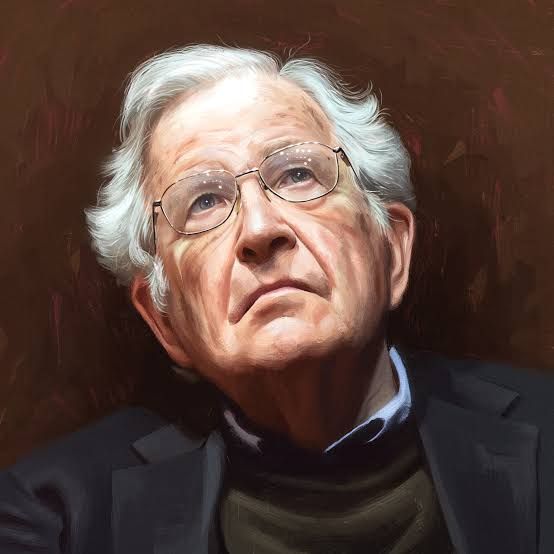
Noam Chomsky - Source: The New York Times
As an intellectual, taking a stance on a particular side of a war can have significant ethical implications. On one hand, some may feel a moral obligation to speak out publicly against the atrocities committed by the (RSF) against civilians in all areas under their control. This could be seen as a way to promote justice and prevent further harm to civilians. However, taking a side can also mean that the intellectual is supporting violence and indirectly contributing to the suffering of those caught in the crossfire, which could be considered unethical. Therefore, it is also important to carefully consider the consequences of their actions and their impact on the course of the conflict.
Nevertheless, it is important to note that intellectuals are not a homogeneous group, and their responses to war can vary significantly. An intellectual is not always right; they may contribute to rallying people to one side against the other, and could be a victim of an ideology and a survivor of its opposite. In war, determining what is right or wrong is complex, and it is difficult for intellectuals to remain completely neutral. Their views may be influenced by their beliefs and values. However, it is important for them to strive for objectivity and consider multiple perspectives.
Ultimately, the concept of right and wrong in war is subjective and depends on individual perspectives. Sometimes, Marxist intellectuals view war as a result of capitalist imperialism and support anti-war movements. On the other hand, conservative intellectuals may support military intervention in certain situations, seeing it as a means of protecting national security interests. In any case, it is difficult to arrive at a unified stance on the current war. However, it is of great importance to preserve these diverse voices, as their contributions are essential in promoting dialogue and understanding.
The Impact
War has always had a profound impact on intellectuals throughout history, from the clash of ideologies to the destruction of cultural heritage and the loss of human lives—all of which are aspects of deep concern to intellectuals. Historically, intellectuals' positions on war have varied, with some opposing it and others participating in supporting the mechanisms of war as soldiers and military planners. Intellectuals have been influenced by different historical and cultural contexts in their ethical stances on war.
For example, if we look back a bit to the Civil War in the South, we find that the weakness of intellectuals, the absence of intellectual rigor, and the lack of a sense of national interest contributed to the emergence of conflicting currents around national identity. This led to an increase in identity-based polarization, which fragmented society and created vertical divisions, deepening the social rift, and turning the Civil War in the minds of both Northerners and Southerners into what resembled a genocide.
However, the Sudanese intellectual cannot be solely held responsible for these events. As Professor Abdullah Ali Ibrahim humorously states in colloquial terms, the intellectual was merely a "scalp guard" —meaning that their role in political systems is not to create the agenda, but rather to give cultural legitimacy to an agenda created by politicians who approach politics as a process based on trickery and deception, far from any intellectual or moral exile.
It can also be said that colonial factors contributed to the outbreak of the Civil War in the South. The methods of intellectual upbringing used by the colonizer had a significant impact. The British colonizer sent the Southern elites for education in missionary schools in East Africa, while the Northern elites received their education in 'Almarai', sans-serif !important. This contributed to deepening the cultural rifts in Sudanese society and led to the divisions that we lived through, even until the secession. Furthermore, the weakening of the economics of knowledge contributed to the transformation of universities from places of studying and analyzing societies into mere laboratories for teaching theoretical curricula.
This led us to two types of intellectuals: the first is the intellectual connected to non-governmental organizations that rely on funding conditioned by specific agendas and issues, and the second is the government intellectual who works within the framework of authoritarianism, where the outcomes are often poor, especially with universities relying on favoritism and political loyalty in their hiring mechanisms.
Globally, during World War I, many intellectuals believed in the concept of a just war and supported their countries. However, after the war, the horrors of the conflict led to a shift in thought towards peace and anti-war sentiments. In contrast, during World War II, many intellectuals believed it was necessary to fight fascism and totalitarianism, leading to a different ethical stance on war. The Cold War era also had a significant impact on intellectuals' ethical positions on war. Many intellectuals were divided between the two superpowers, the United States and the Soviet Union, which led to discussions on the ethics of using nuclear weapons and the arms race.
Opinions varied among individuals without a unified knowledge community. For example, Albert Einstein was a peace advocate and opposed both World War I and II. Jean-Paul Sartre supported the French resistance during World War II. Bertrand Russell was a prominent anti-war activist throughout the 20th century. Many intellectuals also participated in protests against the Vietnam War in the United States during the 1960s and 1970s.
The issue of neutrality during times of war or aligning with one side has been a subject of debate among intellectuals throughout history. Some argue that it is impossible to remain neutral and that taking a side is necessary. Others, such as Hannah Arendt, believe that intellectuals have a responsibility to speak out publicly against injustice and violence, even if it means taking positions that are unpopular.
Conclusion
War has always posed a real ethical and intellectual challenge to intellectuals around the world, and Sudan is no exception. The Sudanese intellectual must rise to their role in producing genuine knowledge based on the tools and analytical concepts provided by social sciences to approach the reality of the April 15 war and link it to the long historical context of post-colonial state wars. This requires them to be in constant confrontation with political and social forces that attempt to silence or co-opt them.
Today, it is crucial for the intellectual to reclaim their true role in educating society, rejecting violence, and working to build a cultural front that creates a strategic peace, moving away from fragmented and temporary solutions.
